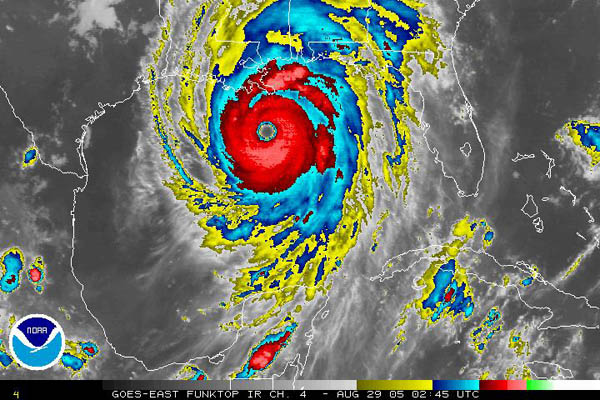Someone is blogging Kafka’s diaries, from 1910 to 1923. They’re still in the first year. Either it started recently, or lost steam early at some undetermined date (the editor has opted to remove datelines from posts). Any dates added by Kafka himself are of course retained. Archives are organized by year within the span of the diaries.
I subscribed to the feed to see if it keeps updating (they’re using a recent version of Movable Type – more recent than ours – so I bet things are active). It could be a nice way to read these.
There’s also a blog of the diary of Samuel Pepys, which seems to have been chugging along for about two years. A nice touch is that instead of comments they have “annotations.” A quick glance reveals that quite a number of people are participating in this reading.
update: Another good book blogging experiment worth checking out is Bryan Alexander‘s Dracula Blogged – “Bram Stoker’s vampire novel, published by its own calendar” – which will conclude sometime in November. A particularly clever choice, since Dracula is largely written in letters and journal entries.
Category Archives: blog
google blog search – still a long way to go
Google’s new blog search engine reminds me of how far we still have to go with blog search. The engine works much the same way as Google’s general web search – with keywords and page ranking – only here it’s searching RSS feeds. Recent posts with keyword matches fill the column, and a few links to related blogs come up at the top. But there’s the rub. These so-called “related” blogs are only related by direct keyword matches in their title tagline. I just searched “poetry” and came up with only three related blogs. C’mon. A search for “gossip” turns up only one related blog – “Starbucks Gossip”. There has to be some kind of promotion going on here, though their “about” page mentions nothing of the kind.
A good engine would be capable of searching blogs by their subject, their preoccupation, their obsession. Many blogs could be considered “general,” but just as many have a special focus, and readers are often searching with a particular theme in mind. They don’t just want a list of transient posts, but whole sites that might potentially become regular destinations. Many blogs are valuable publications that prove themselves day after day. But blog search hasn’t yet grown beyond the trendy “what’s the latest chatter on the blogosphere” mode.
I do have to give credit to Technorati. Glitchy as it is, they’re trying to think of creative ways – tagging, author-determined keywords – to help readers find interesting blogs and authors their audience. Then again, my greatest finds have usually been from other blogs. Humans will always be the smartest aggregators.
People out there, what do you use?
blogging the hurricane

As Katrina has blasted the Gulf Coast beyond recognition, a number of blogs have maintained a steady stream of reportage and personal testimony, in some cases serving as bulletin boards for the names of the missing. Given the extent of the destruction to communications infrastructure, it’s not surprising that it has primarily been the media blogs that have managed to stay active.
Here are a few I’ve come across (Poynter Online has been an invaluable resource for exploring the online response to Katrina):
Eyes on Katrina: A South Mississippi hurricane journal (from The Sun Herald) – a combination of brief news updates, community bulletin board, and advance runs of Sun Herald stories on Katrina.
Tuesday, 2:23 pm:
This from staff writer Geoff Pender, who is calling in reports from Hattiesburg. If you are thinking about getting in the car and coming back to South Mississippi, don’t. The Mississippi Emergency Management Agency is telling people who have evacuated to stay away until the roads have been cleared and the National Guard is in place. If we get word when that happens, we’ll pass it along.
On a different note, we have a report that portions of U.S. 90 are under seven feet of water.
NOLA View: a weblog by Jon Donley – for nola.com, a news and culture portal from The New Orleans Times-Picayune. Posting survival stories from readers.
From reader Lynne Bernard (today), on trying to survive in Talahassee, FL:
Story: We are stranded in Tallahassee. There is absolutely no compassion here whatsoever. The Hampton Inn in Tallahasse is pretty much throwing us out because of a football game. We are running out of money with no way of getting more out of the bank. We cannot use debit cards and our credit cards are maxed out. I thought I would encounter a little compassion and understanding here in Florida seeing they have been through similar situations. There is none. People here and the manager of this motel are very cold and uncaring. If anyone out there has any suggestions please email me asap. I cannot get in touch with red cross or fema. Cell phones don’t work. Can’t get hold of any family member for help. Please help!!!!
CNN: Miles O’Brien’s Hurricane Blog – direct from Louisiana.
Monday, 6:54 am:
Louisiana State University Hurricane Center’s Ivor van Heerden just said a real concern is coffins that would be swept away by the floodwaters — which themselves will be laced with a witches’ brew of industrial chemicals. Horrifying image.
Metroblogging New Orleans – group blog with frequent, first-hand reports.
12:54 pm today, from Craig Giesecke:
Being refugees has forced us to confront new realities and possibilities, particularly since it might be a while before we’ll actually be able to return to stay. I’m self-employed in a food business that was just beginning to take off and fly a bit on its own when this storm struck. To wit…
1) when we actually go home, what shape will my production facility be in? Since it’s in Mid-City, I’m assuming it’s already full of water.
2) Even if I can get the equipment operating again someplace else, 75 percent of my business is done in metro New Orleans. Lord knows how long it might be (2006?) before any local clients will be able to start placing orders again.
3) So far, our house seems to be dry. But when we get back in, how long will it be before anything else is around us? The neighbors will return, but how long before any of us can start earning a paycheck again? I mean — earning a paycheck ANYwhere?
Storm Central from al.com (“everything alabama”) – news updates and reader email.
Paula Baker from Houston, TX:
I am trying to find out about my brother. Stayed in Pascagoula. House on Sunfish Dr. 5 Blocks from beach
This is just a selection – by no means comprehensive. Let us know if you find anything else of interest.
the blog as a record of reading
An excellent essay in last month’s Common-Place, “Blogging in the Early Republic” by W. Caleb McDaniel, examines the historical antecedents of the present blogging craze, looking not to the usual suspects – world shakers like Martin Luther and Thomas Paine – but to an obscure 19th century abolitionist named Henry Clarke Wright. Wright was a prolific writer and tireless lecturer on a variety of liberal causes. He was also “an inveterate journal keeper,” filling over a hundred diaries through the course of his life. And on top of that, he was an avid reader, the diaries serving as a record of his voluminous consumption. McDaniel writes:

While private, the journals were also public. Wright mailed pages and even whole volumes to his friends or read them excerpts from the diaries, and many pages were later published in his numerous books. Thus, as his biographer Lewis Perry notes, in the case of Wright, “distinctions between private and public, between diaries and published writings, meant little.”
Wright’s journaling habit is interesting not for any noticeable impact it had on the politics or public discourse of his day; nor (at least for our purposes) for anything particularly memorable he may have written. Nor is it interesting for the fact that he was an active journal-keeper, since the practice was widespread in his time. Wright’s case is worth revisiting because it is typical — typical not just of his time, but of ours. It tells a strikingly familiar story: the story of a reader awash in a flood of information.
Wright, in his lifetime, experienced an incredible proliferation of printed materials, especially newspapers. The print revolution begun in Germany 400 years before had suddenly gone into overdrive.
The growth of the empire of newspapers had two related effects on the practices of American readers. First, the new surplus of print meant that there was more to read. Whereas readers in the colonial period had been intensive readers of selected texts like the Bible and devotional literature, by 1850 they were extensive readers, who could browse and choose from a staggering array of reading choices. Second, the shift from deference to democratization encouraged individual readers to indulge their own preferences for particular kinds of reading, preferences that were exploited and targeted by antebellum publishers. In short, readers had more printed materials to choose from, more freedom to choose, and more printed materials that were tailored to their choices.
Wright’s journaling was his way of metabolizing this deluge of print, and his story draws attention to a key aspect of blogging that is often overshadowed by the more popular narrative – that of the latter-day pamphleteer, the lone political blogger chipping away at mainstream media hegemony. The fact is that most blogs are not political. The star pundits that have risen to prominence in recent years are by no means representative of the world’s roughly 15 million bloggers. Yet there is one crucial characteristic that is shared by all of them – by the knitting bloggers, the dog bloggers, the macrobiotic cooking bloggers, along with the Instapundits and Daily Koses: they are all records of reading.
The blog provides a means of processing and selecting from an overwhelming abundance of written matter, and of publishing that record, with commentary, for anyone who cares to read it. In some cases, these “readings” become influential in themselves, and multiple readers engage in conversations across blogs. But treating blogging first as a reading practice, and second as its own genre of writing, political or otherwise, is useful in forming a more complete picture of this new/old phenomenon. To be sure, today’s abundance makes the surge in 18th century printing look like a light sprinkle. But the fundamental problem for readers is no different. Fortunately, blogs provide us with that much more power to record and annotate our readings in a way that can be shared with others. We return to Bob’s observation that something profound is happening to our media consumption patterns.
As McDaniel puts it:
…readers, in a culture of abundant reading material, regularly seek out other readers, either by becoming writers themselves or by sharing their records of reading with others. That process, of course, requires cultural conditions that value democratic rather than deferential ideals of authority. But to explain how new habits of reading and writing develop, those cultural conditions matter as much–perhaps more–than economic or technological innovations. As Tocqueville knew, the explosion of newspapers in America was not just a result of their cheapness or their means of production, any more than the explosion of blogging is just a result of the fact that free and user-friendly software like Blogger is available. Perhaps, instead, blogging is the literate person’s new outlet for an old need. In Wright’s words, it is the need “to see more of what is going on around me.” And in print cultures where there is more to see, it takes reading, writing, and association in order to see more.
(image: “old men reading” by nobody, via Flickr)
